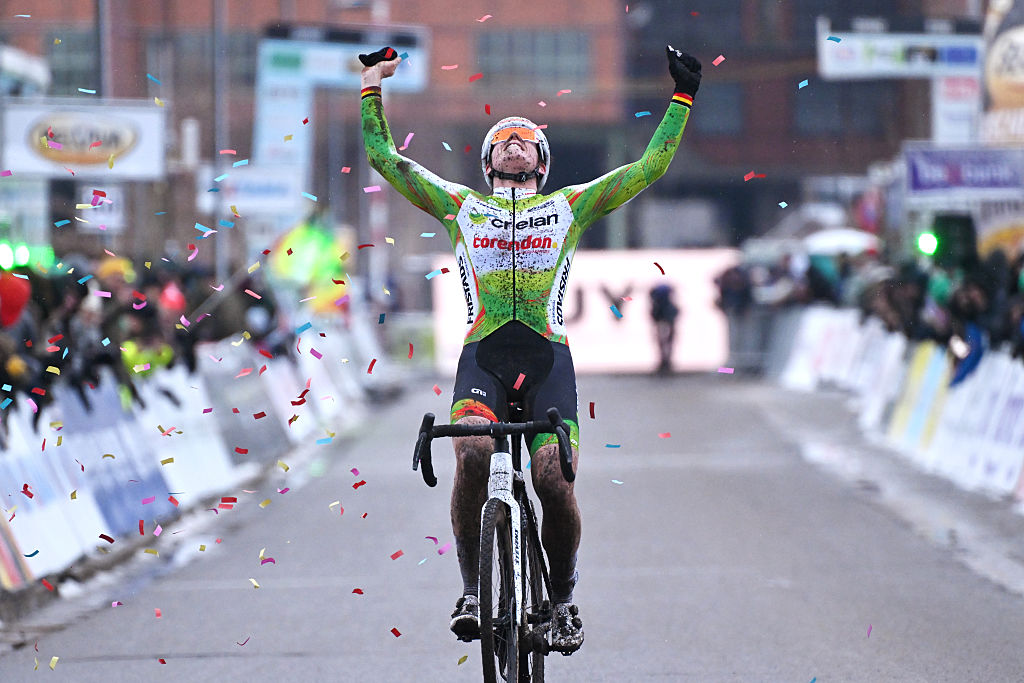Gilbert: Terpstra performs and that's the main thing
'There's never a defined role on this team' says third-place finisher at Flanders
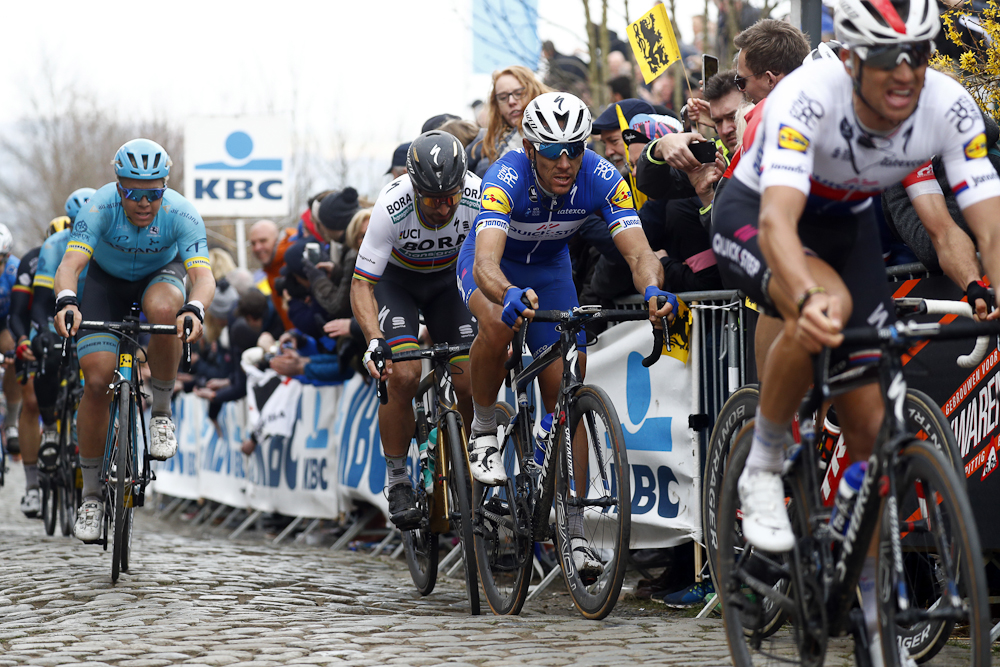
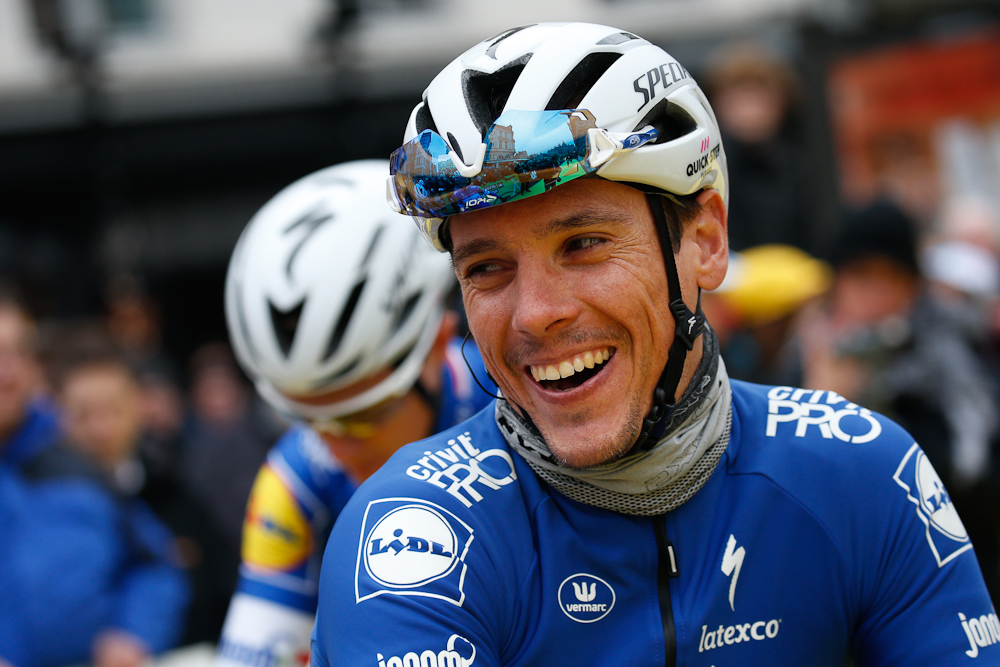
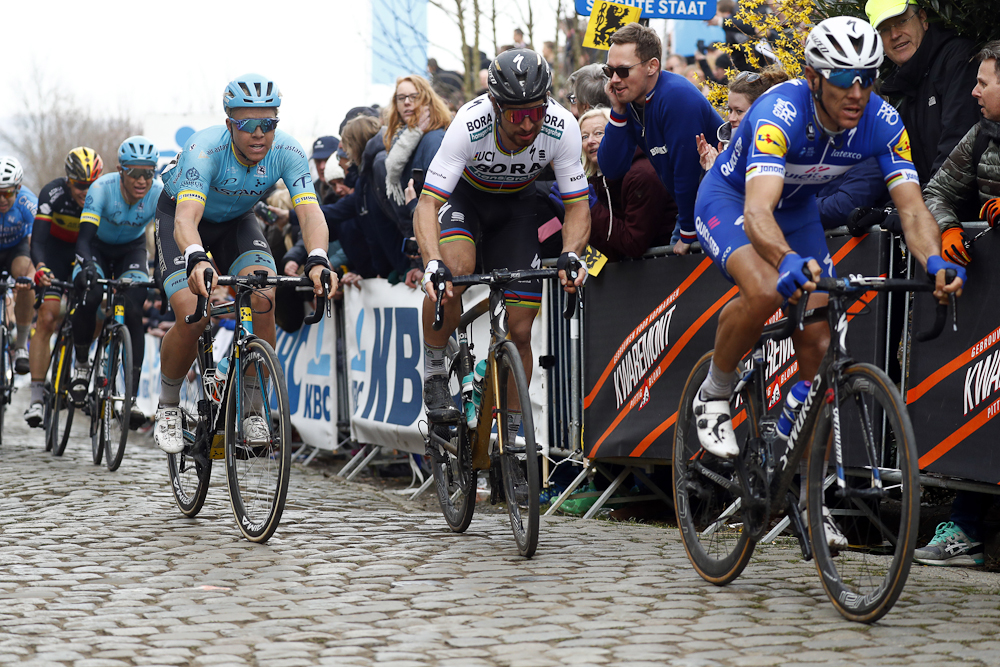
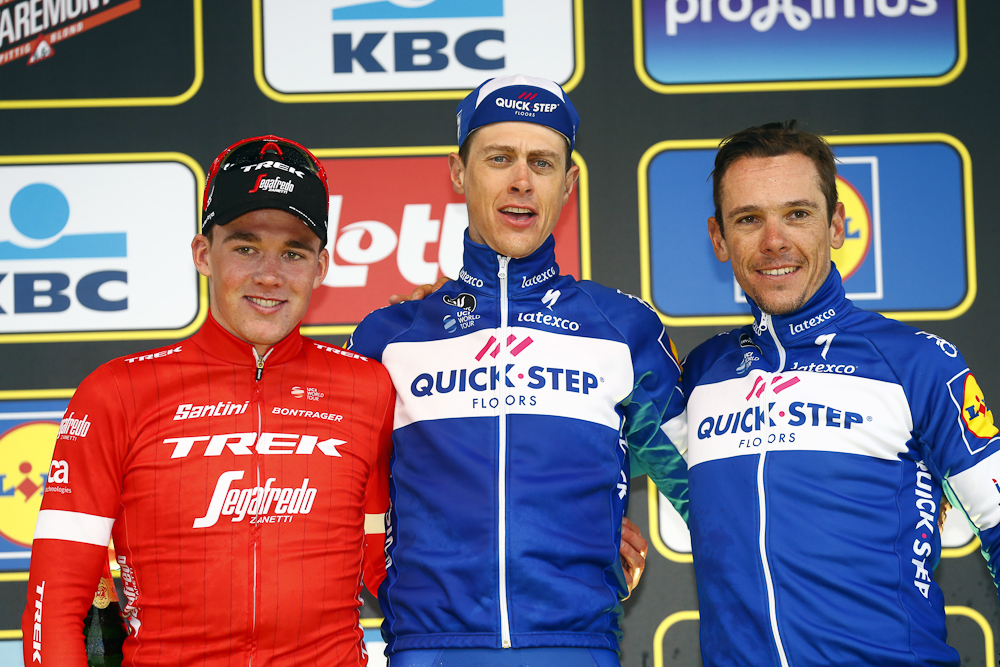
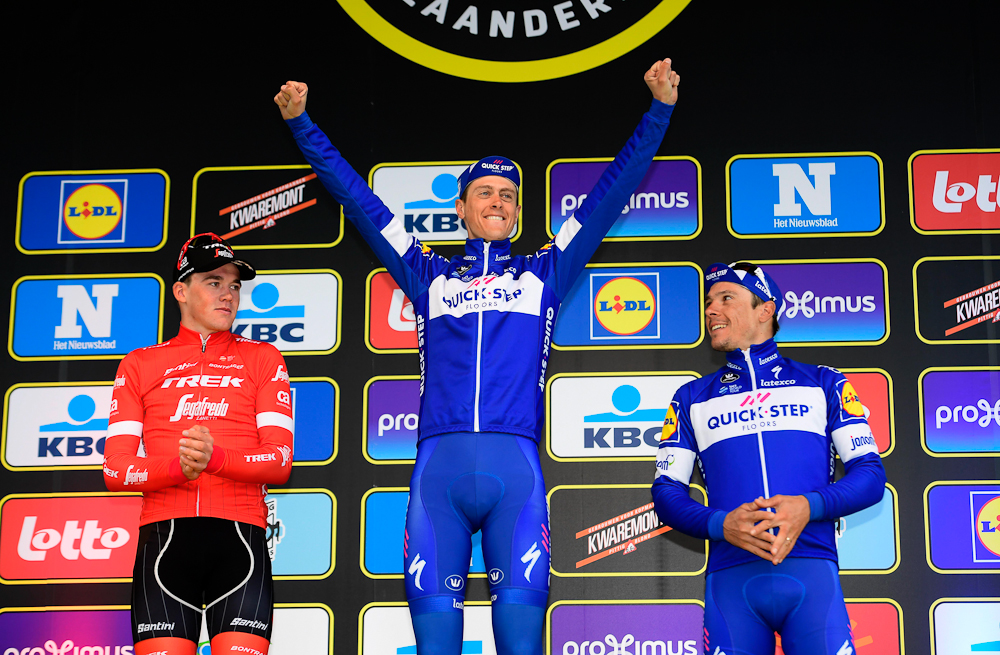
Philippe Gilbert knew exactly what he was signing up for when he agreed to terms with Patrick Lefevere at the end of 2016. There would be the chance at personal glory, true, but there would also be days like these.
Niki Terpstra wins 2018 Tour of Flanders
Tour of Flanders highlights - Video
Sagan: When other riders don't wake up, Quick-Step will win
Rowe says commissaires were wrong to disqualify him from Tour of Flanders
Tour of Flanders: A different kind of disappointment for Van Avermaet
Valgren battles back from crash to take fourth at Tour of Flanders
Twelve months ago, Gilbert was the beneficiary of Quick-Step Floor's fearsome collective strength at the Tour of Flanders, soloing to victory after Tom Boonen et al helped to stack the deck in his favour. This time around, Quick-Step's fluid formation saw him deployed as a man maker in the finale after his teammate Niki Terpstra forged clear on the Hotond with 26 kilometres still to race.
Not for the first time this spring, Gilbert performed his duties diligently, as he and teammate Zdenek Stybar carefully shadowed Peter Sagan, Greg Van Avermaet et al over the Kwaremont and Paterberg, and then smothered the life out of their chase on the run-in to Oudenaarde.
It was hardly surprising, too, that Gilbert had the wherewithal to clip away from the chasing group in the finale and help himself to the third step on the podium, just as Terpstra placed third during his own winning effort a year ago.
"There's never a defined role on this team. We ride together and we know how it works and it's the situation of the race that decides who's in front," Gilbert said when asked if it would be his turn to lead at Paris-Roubaix next weekend. "We don't decide the roles beforehand."
Gilbert and Greg Van Avermaet's competing ambitions were deemed incompatible at BMC's Classics squad, but since moving to Quick-Step, Gilbert has repeatedly shown himself capable of performing the role of dutiful teammate. Then again, Patrick Lefevere has been managing talent and egos in the cobbled Classics for decades.
"It's true that I like to win, and everybody has ambitions of their own, but when you put on this jersey, you ride for the jersey to win," said Gilbert. "When there's a teammate in front, you play that card, and that's why we've had so much success since the start of the year."
The latest race content, interviews, features, reviews and expert buying guides, direct to your inbox!
Quick-Step tactic
The consensus beforehand was that the favourite for this Tour of Flanders was not an individual, but a rather a collective, the Quick-Step Floors team. Rather than bide their time for the finale, where Terpstra, Gilbert, Stybar and Yves Lampaert were all potential winners, Quick-Step opted for a show of force early on, and a high-speed start meant that it took almost two hours for a break to clear and the race to settle. Even then, Quick-Step's blue jerseys were prominent at the front come the first of the hellingen.
"We rode all day, we wanted a hard race, and we did almost 80 kilometres full on," Gilbert said. "When the break went, the bunch was already tired, and we already had a natural selection."
Although Quick-Step's precise hierarchy is fluid – to use a footballing analogy, the team lined out with four false nines and no centre-forward – Gilbert acknowledged that Terpstra's victory was not simply a case of being in the right place at the right time. The Dutchman's stinging pace on the Hotond, after all, proved too much even for Vincenzo Nibali (Bahrain-Merida) to follow.
"I think today, yes, the strongest rider won," Gilbert said of Terpstra. "It wasn't a surprise. He went at the right moment and he read the race very well, but after that you still need the legs to resist the guys coming back."
At the beginning of the season, Gilbert made clear his desire to win all five of cycling's Monuments before the end of his career and, to that end, he will return to Paris-Roubaix next week for the first time since he made his debut in the race back in 2007.
The Hell of the North may be the centrepiece of Gilbert's Spring campaign, but he is well aware that personal ambition will not alter his status in Quick-Step's game plan. "It's hard to say what effect today's effort will have next week," Gilbert said. "I suffered again today with the cold and so on, but it was the same for everybody."
Everybody, it seems, bar Terpstra, who rode with disarming strength over the final 26 kilometres to claim the second Monument of his career after his Paris-Roubaix victory of 2014.
"As he was described recently, he's an individualist who still manages to ride for his team," Gilbert said. "He's an atypical rider. He does things he's own way but on the bike, he performs and that's the main thing."

Barry Ryan was Head of Features at Cyclingnews. He has covered professional cycling since 2010, reporting from the Tour de France, Giro d’Italia and events from Argentina to Japan. His writing has appeared in The Independent, Procycling and Cycling Plus. He is the author of The Ascent: Sean Kelly, Stephen Roche and the Rise of Irish Cycling’s Golden Generation, published by Gill Books.
